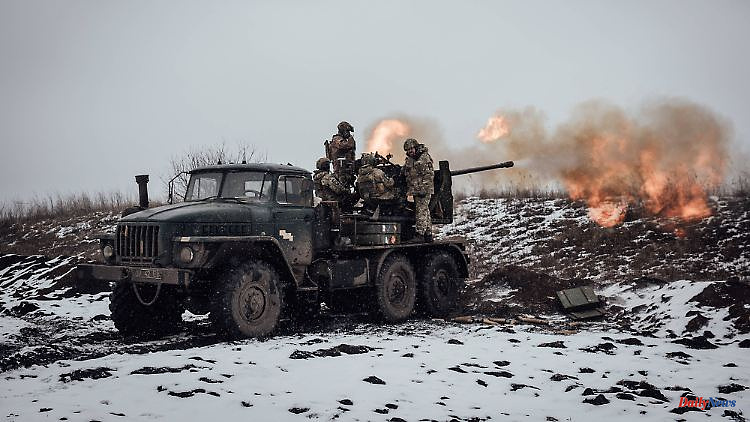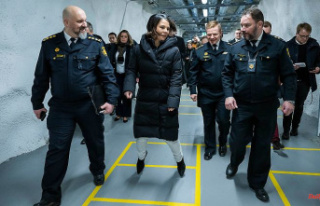Several sides are now assuming that Russia has given the order to advance in eastern Ukraine. The British secret service currently sees the defense as relatively stable. The combat power of the Russians is not yet sufficient for a decisive effect on any axis.
The Russian offensive seems to have started just before the anniversary of the attack on Ukraine. This is what NATO Secretary General Jens Stoltenberg assumes. "In the last three days, Wagner Group troops have most likely made further small advances on the northern outskirts of the embattled Donbass town of Bakhmut and advanced as far as the village of Krasna Hora," said the daily update of the Ministry of Defense from London, referring to information from the secret service. Previously, Wagner boss Yevgeny Prigoschin announced that he had taken the place.
The fighting in the area, which has been going on for months, is particularly costly for both sides. Before the war, Bakhmut had around 75,000 inhabitants, Krasna Hora around 600. According to British intelligence, the Ukrainian defense should continue. The tactical Russian advance south of the city was therefore probably hardly progressed.
North of Bakhmut, in the next hotspot sector, Kremina-Svatove, Russian forces would make continuous offensive efforts, but any local attack was too small to achieve a significant breakthrough. London suspects that Russia wants to reverse some of the gains made by Ukraine's armed forces between September and November. So far, success has been limited: "Overall, the current operational picture indicates that the Russian armed forces have received orders to advance in most sectors, but that they have not concentrated enough offensive combat power on any axis to have a decisive effect achieve."
The Ukrainian side has recently reported exceptionally high losses on the Russian side. Around 1,000 Russian soldiers are said to have died in the combat zones several times a day, and the armed forces said they eliminated military material such as tanks and artillery by the dozen. However, this information cannot be verified independently. The Ukrainian side recently warned of ammunition shortages due to the ongoing pressure from the Russian armed forces.
President Vladimir Putin is sending "thousands and thousands more troops" and accepting a very high number of casualties, NATO Secretary General Stoltenberg said in Brussels. The US think tank Institute for the Study of War (ISW) says a large-scale and rapid breach is unlikely if Russia uses mobilized soldiers to replace battle-damaged units. Those mobilized probably only received limited training, and the unit probably lacked the necessary experience and cohesion, writes the ISW.












